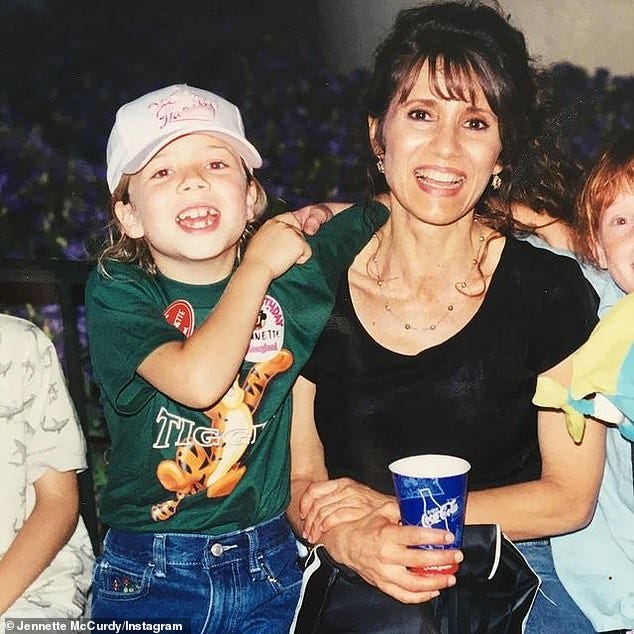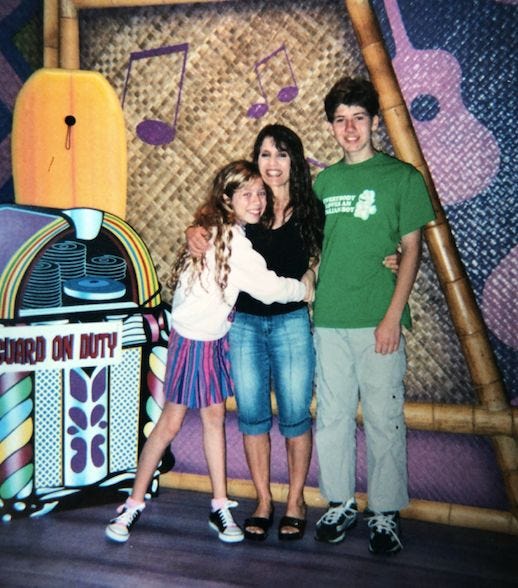Finding Freedom: A Journey Beyond Trauma and Parental Control
Written on
Understanding the Unthinkable
As someone who has experienced the lasting effects of childhood abuse, I am familiar with the impulsive expressions of frustration we often voice during conflicts with our parents: “I despise my mom. I can’t stand my dad.” However, it takes a profound level of suffering and comprehension to reach the point of saying something as severe as, “I wish my parents were gone.” Throughout my life, I have found myself uttering those words, and I meant them every time. For individuals raised in nurturing and supportive environments, this sentiment might seem incomprehensible. Parents are typically viewed as providers, caretakers, and guardians. But what about the children who need safeguarding from their own guardians?
After countless revisions and over a year of hard work, Jennette McCurdy's memoir, “I’m Glad My Mom Died,” presents a raw and unsettling exploration of the duality of being a child actor and the complicated dynamics that can exist between a parent and child. Readers who engage with the book will understand that the title is not only genuine but also carefully chosen, reflecting the painful journey through its pages. It is neither sensationalized nor misleading, yet it has sparked significant controversy.
The book opens with challenging material wrapped in a cloak of dark humor. McCurdy describes her childhood home as oppressive, filled with an atmosphere that felt “like a breath held.” Her mother, Debra, a cancer survivor, took pride in her survival, forcing her children to watch and rewatch recordings of her battle with the illness. For Jennette, these grim “movie nights” served as a disturbing rehearsal for her mother's potential demise.

The Central Role of the Mother
For most of her life, Jennette felt as if she did not truly exist. Instead, there was only her mother and a smaller version of her mother, referred to as “Jennette.” The lines between their identities blurred to the point where it was difficult to distinguish where one ended and the other began. Debra controlled every aspect of Jennette's life, from her religious beliefs to her career choices and eating habits.
As Jennette transitioned into her teenage years, food became a significant point of contention in their relationship. The two conspired to keep Jennette in a perpetual state of childhood, attempting to stifle her growth. This dynamic provided comfort for both, as Jennette feared that maturing would lead to a loss of her mother’s affection.
The introduction of “calorie restriction” marked a pivotal moment. This euphemism concealed what was effectively an abusive regime of anorexia. Together, they devised a plan for Jennette to consume only 1,000 calories a day, often consuming even less, and she would proudly show her mother the remnants of her meals. Their shared “meals” rarely amounted to more than steamed vegetables and plain protein. At the peak of her childhood anorexia, Jennette found herself engrossed in diet literature provided by her mother, weighing herself multiple times a day, and obsessively measuring her body.
When a concerned doctor confronted Debra regarding Jennette’s alarming weight, Debra feigned surprise, insisting her daughter was maintaining a healthy lifestyle. The importance of thinness became ingrained in Jennette’s psyche, leading to obsessive behaviors that followed her into adulthood—first as anorexia and later evolving into bulimia. Stressful situations were met with cycles of bingeing and purging until it became a daily ritual.
One of the most harrowing experiences occurred during a flight when Jennette noticed a tooth had been expelled alongside her vomit, a testament to the physical toll of her destructive relationship with food.

The Weight of Expectations
Thinness held such significance for the duo that the memoir begins with Jennette trying to awaken her mother from a coma by stating, “I’m so skinny right now. I’m finally down to 89 lbs.” This is what Jennette believed would inspire her mother to awaken, as it represented her fulfillment of the weight goal set by Debra. It is only when her mother remains unresponsive that Jennette confronts the reality of her mother’s impending death.
However, the impact of this moment diverges from what one might expect. Jennette must grapple not only with the loss of her mother—her closest companion—but also with the shattering of her identity. Throughout her life, Jennette had dedicated herself to making her mother happy, sacrificing her own desires to fulfill Debra’s dreams and maintain their bond.
Her pursuit of acting, which began as a way to please her mother, led to overwhelming stress and the development of obsessive-compulsive behaviors. The praise she received for her ability to “cry on cue” came at a cost, as she imagined horrific scenarios involving her brothers’ deaths to elicit genuine emotion, while she could never dare to envision her mother’s death.
At 15, when Jennette landed a leading role in “iCarly,” her mother’s excitement was palpable, but Jennette felt conflicted. The show sexualized her teenage body, pushing her into uncomfortable situations orchestrated by an emotionally abusive figure known as “The Creator.” Despite her feelings of discomfort, Jennette felt compelled to comply.
